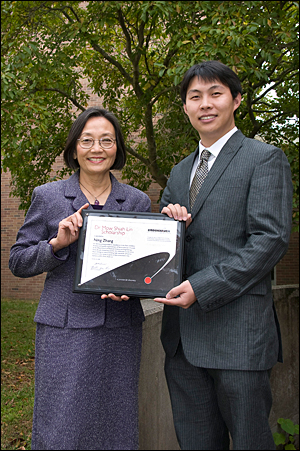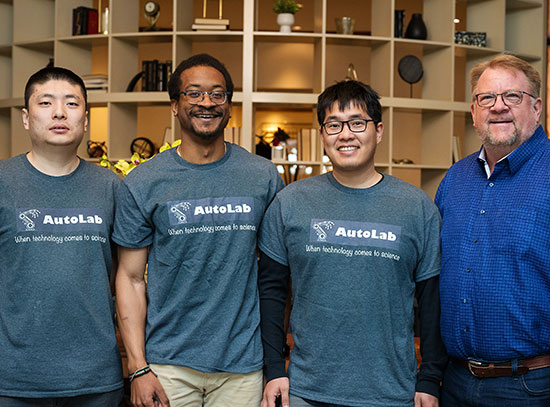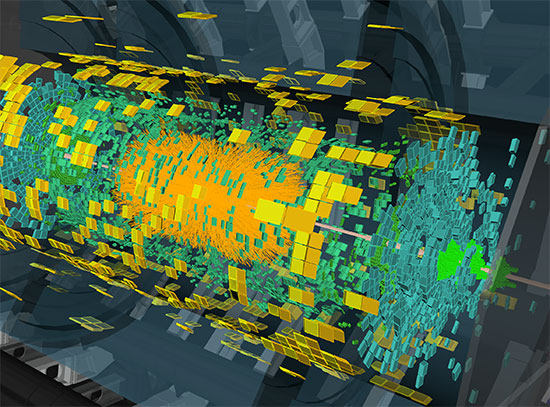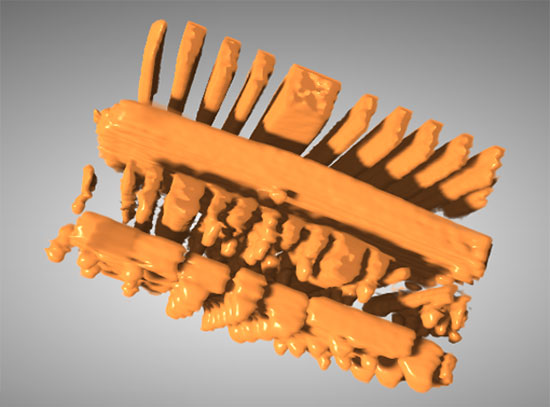Stony Brook University Student Wins Dr. Mow Shiah Lin Scholarship
November 5, 2008
 enlarge
enlarge
Beth Y. Lin, widow of Mow Shiah Lin and a member of the BERA Asian Pacific American Association Scholarship and Selection Committees, presents Stony Brook University student Ning Zhang with the 2008 Dr. Mow Shiah Lin Scholarship. (Click on the image to download a high-resolution version.)
UPTON, NY — Ning Zhang, a graduate student at Stony Brook University’s Department of Materials Science and Engineering, has won the fourth annual Dr. Mow Shiah Lin Scholarship. The Asian Pacific American Association at the U.S. Department of Energy’s Brookhaven National Laboratory initiated the scholarship, which consists of $1,000 and a plaque, to honor the distinguished late Brookhaven Lab scientist for which it is named.
“My deep and sincere gratitude goes to Dr. Lin’s family and to all others who made this scholarship possible,” Zhang said. “My career goal is to become a research scientist like Dr. Lin at an institute like Brookhaven Lab.”
Mow Shiah Lin began his career at Brookhaven Lab in 1975 as a postdoctoral fellow and advanced to co-lead a research team working with an environmental remediation company to use selected bacteria to convert toxic oil wastes, such as used motor oils, into useful products. In 2001, Lin shared the R&D 100 Award, given by R&D Magazine to the top 100 technological achievements of the year, for a technology to recover silica from geothermal brine. Lin died suddenly due to a brain aneurysm at the height of his career in 2003, and his coworkers, friends and family contributed funds to establish the scholarship.
In honor of Lin’s research, achievements and inventions, the scholarship is granted annually to an Asian immigrant with a student visa who is matriculating toward a graduate degree at an accredited institution of higher education in environmental and energy technology, biology, or chemistry, in remembrance of the manner in which Lin began his career.
Ning Zhang earned a B.S. in materials science in 2006 from Fudan University, Shanghai, China. Later that same year, he came to Stony Brook University, where he expects to earn his Ph.D. in materials science by 2010.
At the ceremony, Zhang gave a talk on “Defect Structures in Silicon Carbide.” He explained that silicon carbide is gradually replacing conventional semiconductor materials, such as silicon and gallium arsenide. Silicon carbide eventually may be used in the photvoltaic solar panels in spacecraft, high-power electronic devices in electric vehicles, and power devices in the public electric power distribution system, which would result in greater efficiency and energy savings in each of these applications. Defects in the material can cause negative effects in its performance and yield. Zhang studies these defects at the atomic level at Brookhaven’s National Synchrotron Light Source and at the Advanced Photon Source at DOE’s Argonne National Laboratory in Chicago, Illinois.
2008-10861 | INT/EXT | Newsroom









